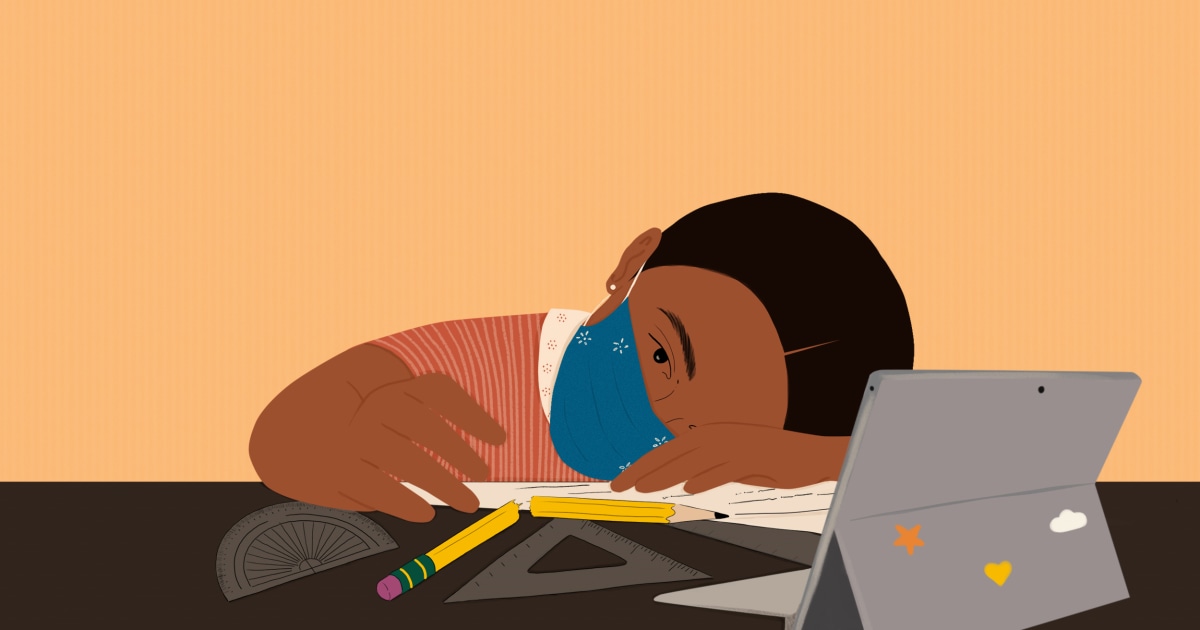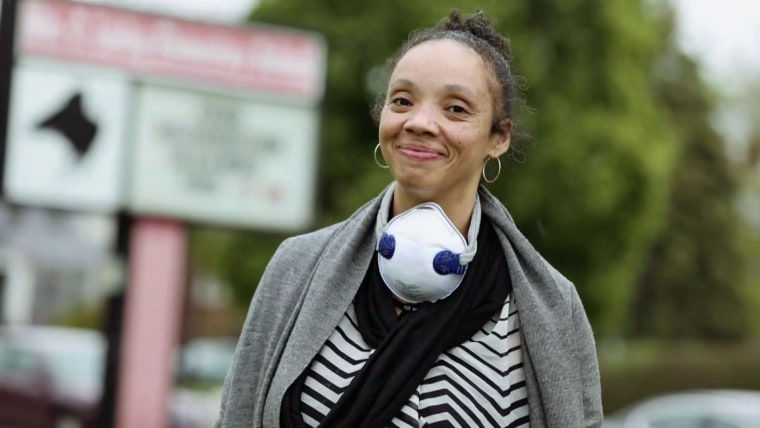
When the Covid-19 pandemic forced the closure of most U.S. schools last spring, students were thrown into new and unknown ways of learning. Special education students and kids discovering English lost support that their schools had a hard time to offer online. Lots of trainees had no access to computer systems or internet and were entirely cut off from their teachers.
The true toll these disturbances have handled student learning won’t be known for months or years, but new reports from national education-testing organizations have begun to provide an early look at that effect.
The latest is a report from NWEA, previously the Northwest Evaluation Association, which analyzed the outcomes of tests given to nearly 4.4 million U.S. students in grades three through eight this fall and found that most fell short in math, scoring an average of 5 to 10 percentile points behind trainees who took the same test in 2015.
For more on this story, view NBC’s “Today” show this morning.
While a majority of trainees did better than expected in reading– scoring at levels comparable to normal nonpandemic years– this wasn’t real for Black and Hispanic students and those who go to high-poverty schools. Those groups of students saw slight decreases, suggesting the pandemic has actually worsened long-standing instructional disparities, potentially setting children who were already behind their white and more wealthy peers even further behind.
” It’s a reason for concern and it’s a factor to really focus our attention on helping capture kids up,” stated Megan Kuhfeld, an NWEA senior research study scientist and the lead author of the study.
Kuhfeld and her associates evaluated ratings from NWEA’s MAP Growth evaluations, which countless U.S. schools offer to trainees several times a year to track their development in mathematics and reading. They found proof that pandemic-related school closures have robbed some susceptible students of crucial abilities that might hinder their development unless their moms and dads and teachers act rapidly to assist them catch up.
” They could fall further and even more behind if they have holes in their learning,” Kuhfeld said, keeping in mind that, for example, it’s hard to find out to multiply fractions if you have not mastered including and deducting them.
However more worrisome than the findings themselves is the truth that they only capture part of the image. The research study was limited by the fact that a high number of students– 1 in 4– who typically take the NWEA’s utilized MAP evaluation in the fall didn’t take it this year.
Trainees may not have actually been checked because they couldn’t connect with their online classes on test day. They might have been absent from school due to the fact that of disease or quarantines. They might attend schools that decided not to check at all this year, offered the numerous new difficulties schools face since of the pandemic. Or the students missing from NWEA’s information may not remain in school at all.
Complete coverage of the coronavirus outbreak
Lots of districts throughout the country have reported considerable drops in enrollment this fall, with one study approximating that 3 countless the nation’s most vulnerable kids– those who are homeless, in foster care, have specials needs or are learning English– could be displaced from school.
That means that while NWEA scientists discovered some good news– trainee scores in both reading and mathematics was available in higher than NWEA forecasted in an earlier report— it’s difficult to know how significant that is.
It’s possible students are learning remotely better than had actually been feared, or that parents have been able to supplement their learning with additional lessons, Kuhfeld stated. Another big factor is the trainees who didn’t take the test– and who would have been more likely to post lower scores.
” The students we’re most worried about are likely the ones who are missing,” Kuhfeld stated.
NWEA’s findings echo the results of another nationwide testing company, Renaissance Learning, Inc., which examined ratings from more than 3 million U.S. students in grades one through 8 on another utilized school assessment called Star and discovered that checking out ratings were down somewhat and mathematics scores were down significantly compared to a typical year. Renaissance, which likewise kept in mind a drop in the number of trainees who took its evaluations this fall, similarly found that Black, Hispanic and Native American trainees, along with rural trainees and those who attend schools that serve high-poverty populations, lost more ground than students with more advantages.
For lots of parents and teachers, this year’s ratings was difficult to see.
” It made me seem like I was failing as a parent,” stated Angélica González, a mom of three from Seattle whose middle kid, a third grader called Lolly, had constantly mastered school till her classes went virtual last spring.
Lolly, who has attention deficit hyperactivity disorder, or ADHD, discovered sitting in front of a computer system screen to attend classes so stressful, González said, that she was crying every day. González eventually provided Lolly approval to avoid those remote classes, choosing to teach her daughter herself instead. That was the very best decision she might produce her daughter’s mental health, González stated, however when the woman went back to school this fall, taking advantage of a program that let some trainees come into the school building for their online classes and to get help from school staff, Lolly’s MAP ratings revealed her reading abilities had hung back to where they ‘d been at the beginning of second grade in 2015. Her math ratings, slightly below the nationwide average, hadn’t budged since last winter season.
González stress over the long-lasting repercussions of the disturbance, especially as the Catholic school Lolly attends on a scholarship just recently reacted to increasing Covid-19 rates by ending the choice to take classes from inside the school. Lolly was much better able to concentrate on her online classes in a class with school personnel on hand to help. Now, she’s back house once again and is struggling as much with remote knowing as she carried out in the spring, González said.
” I understand kids can catch up, however it’s going to take tutoring and resources and cash, and we do not even do that for kids who are having a hard time today,” González stated.
Download the NBC News app for complete protection and signals about the coronavirus outbreak
She herself had actually been homeless in her youth and bounced around from school to school. She was ultimately able to finish high school regardless of becoming a teen mother and went on to college. She recently finished from law school and is working as a paralegal up until she ends up being a licensed lawyer. The gaps in her education have actually dogged her, she said.
” Even to this day, things are way harder due to the fact that I didn’t have that structure,” González said.
She recalled instructors treating her differently because she lagged her grade level and worries that might take place to Lolly.
In Dallas, instructor Kevin Culley has similar concerns for his trainees at Joseph J. Rhoads primary school.
He anticipated to see some lower-than-usual ratings when his third grade math students took the MAP assessment this year, however he didn’t expect to see that a lot of them were half a grade level behind.
” Those ratings were a little frightening,” he stated.
He’s carried out interventions, revamping his lessons to include enjoyable, vibrant presentations and competitive math video games that teach third-grade concepts, together with a second-grade evaluation, to both his in-classroom students and those who view him on a livestream from their homes. He stresses about what could happen to his trainees if they do not capture up before they take Texas’ high-stakes state STAAR test in the spring. The examination can affect whether poor-performing students advance to the next grade, and scores are utilized to examine teachers and elementary school.
” The test is something that looms over their heads, and I truly am concerned about how this is going to affect their self-confidence,” Culley stated. “When you have broken a child’s self-confidence, it’s hard to get them to continue to press forward.”

No comments:
Post a Comment